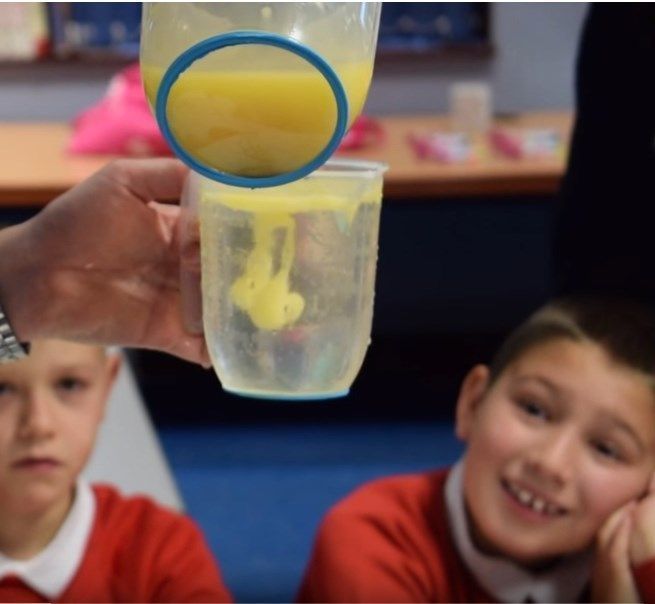Lanes Group plc and Twinkl: Tackling pollution, fatbergs and the environment with a live Twitter takeover

The problem of plastic pollution in our waterways is high on the agenda at the moment, especially since Blue Planet II highlighted the worrying extent of damage to our seas, oceans and marine life.
It is a topic that has captivated people of all ages, but children are especially engaged with the subject. You only have to look at images from recent climate change protests to see just how impassioned today’s youth are regarding environmental issues.
We have worked with both primary and secondary school pupils in the past 12 months to educate them on hidden plastics and pollution. Our friends at Twinkl invited us to a Twitter chat to share some of these learnings. Twinkl provides educational resources that are made by teachers and shared with the whole community. They host regular Twitter chats for people working in education to discuss topical events and subjects that could inform their lesson plans and curriculums.
The theme of this week’s chat was tackling pollution, caring for the environment and avoiding fatbergs, which certainly got everyone talking.
Here are some of the common themes that came up during the discussion:
The Blue Planet II effect
We all agreed that the impact of Blue Planet II cannot be underestimated. The show, which aired last year, captured the nation’s attention by demonstrating the negative effects human behaviour is having on marine life.
It has already led to concrete moves by governments, such as banning single-use plastic bags, but the conversations it sparked are far from over.
https://twitter.com/worldofollie/status/1128382928399085568
We have a lot to thank Sir David Attenborough for, and people are really thinking about the plastic content in the products they purchase and how they dispose of it. Teachers can incorporate this fantastic programme into their lesson plans and you can guarantee a big proportion of kids in each class will have seen it.
Take a look at our educational resources for primary and secondary schools for more ideas on tackling the subject in the classroom.
We need more discussion about period products
One of the questions in the Twitter chat was whether teachers have discussed period products in PSHE lessons and how commonly used items contribute to plastic waste.
It is important that people are not afraid to tackle the subject, as it is such a common cause of plastic pollution.
PHSE lessons, plastic content in period products needs to be discussed. Alternative products, need to be identified so that girls can make informed choices. Lanes championed looking at alternatives recently in a research piece we produced #periodproducts https://t.co/Mn7L9BMqbx
— Lanes For Drains (@LanesForDrains) May 14, 2019
Teachers looking for information on alternatives to traditional period products should take a look at our article which explores what items are currently available, and what the future might look like.
We also discussed the curriculum more broadly during the Twitter chat and how lessons must change to keep pace with modern learning.
'Educational resources for all' is one of the goals for AQS. The modernisation of lessons within schools will allow for more contemporary debates for the younger generations which will spark activism within them. #TwinklTeach
— AQS (@AQSSolutions) May 14, 2019
Engagement is essential
Regardless of the issue being taught, we all agreed that children need to feel engaged with the subject to get the most out of the lesson.
Interactive lesson plans can help with this, as well as selecting emotive topics, such as caring for the environment.
I think it’s really important given the growing environmental crisis! Plus recycling is a really easy thing to teach, can be made fun too! #TwinklTeach
— Gemma Barker (@gembarker92) May 14, 2019
@TheGiddyTeacher added:
“So pleased to see this issue being discussed here! This is the generation who are going to have to deal with the impact of our plastic use. Plastic has reached as far as the bottom of the deepest part of the ocean and Antarctica.
She added: The power of Twitter shouldn’t be underestimated…I tweeted one company who I was receiving plastic covered catalogues from, to ask them to consider alternatives and now they are stopping using plastic! Using our power as consumers to show a demand for change.”
https://twitter.com/worldofollie/status/1128379931333988357
@Worldofollie added: “I’ve found that children aren’t always aware what can or can’t be recycled (same as some adults) plus it gets them really hands on and involved!”
Hands on works a treat we created our own flushing 'buckets' put items in and got the children to stir as quickly creating a flush effect then they could to see if the items disintegrated #twinklteach
— Lanes For Drains (@LanesForDrains) May 14, 2019
The Twitter chat certainly gave us food for thought and we hope it’s just the start of more conversation between teachers, children and other members of the public about this important issue.
If you’re a teacher considering planning a lesson on the subject, take a look at our recent article for Twinkl, with links to a host of educational resources that are free to use.







